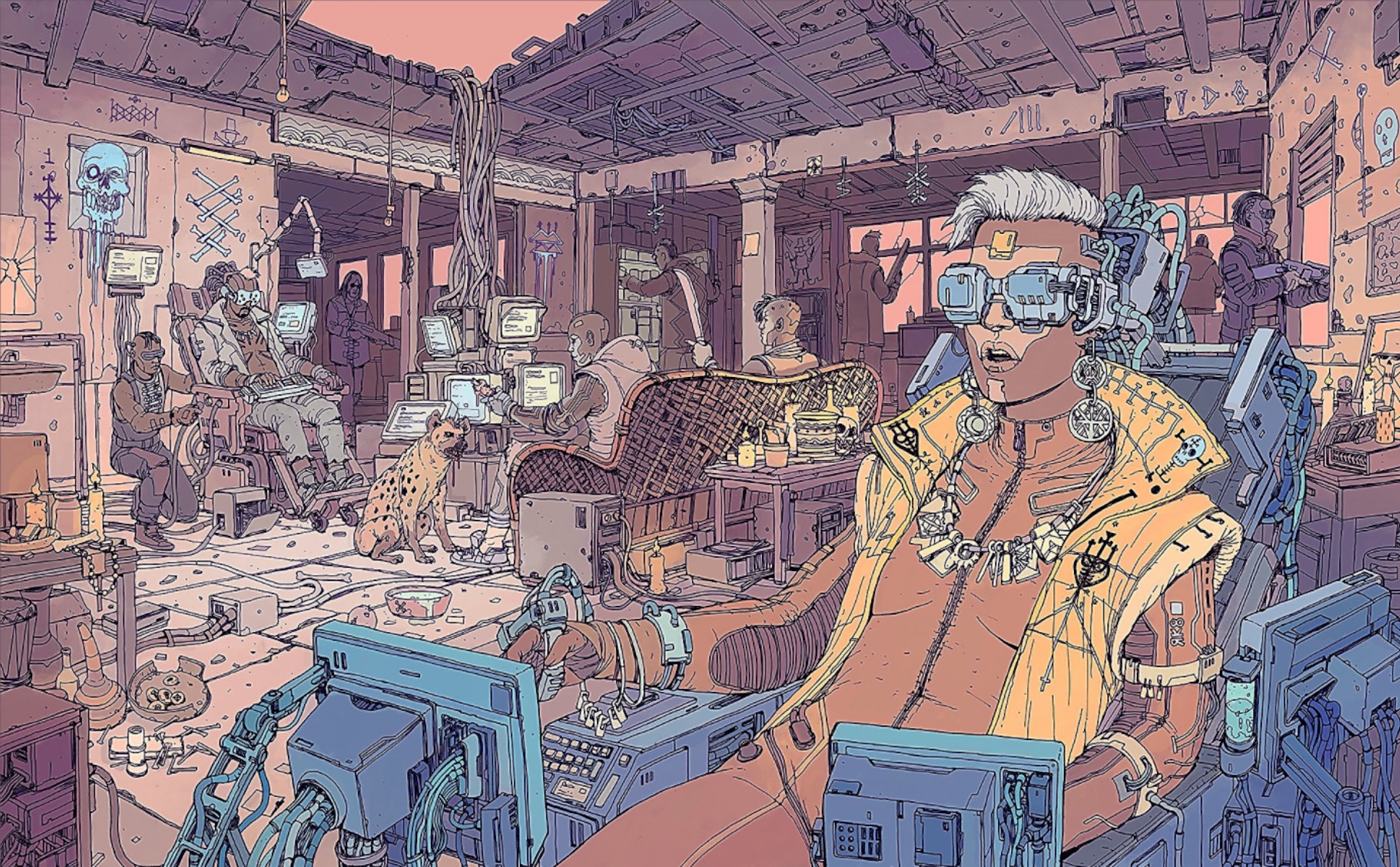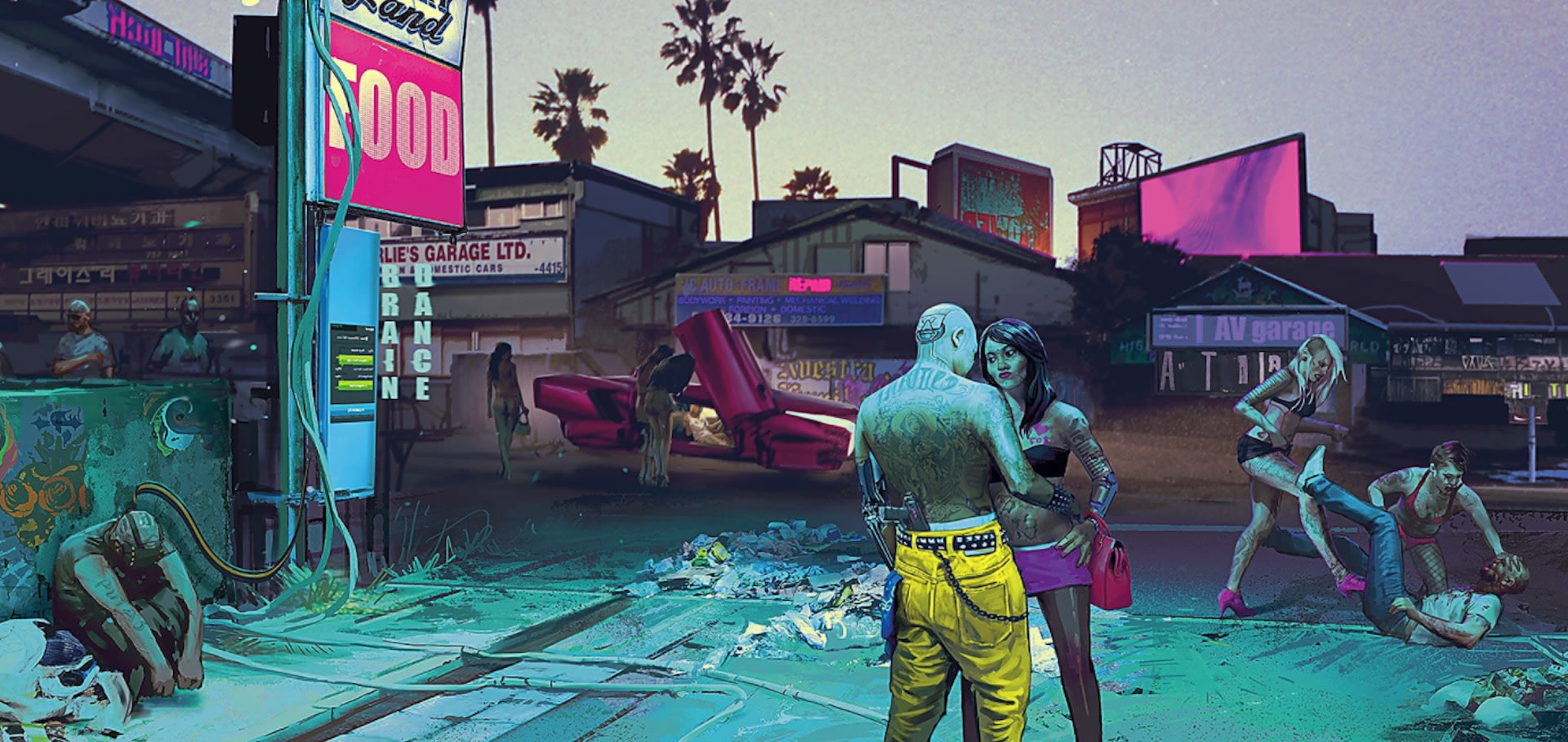Over time, there has been a lot of that in books. From H.G Wells' War of the Worlds (1897) and William Gibson's Neuromancer (1984), to Phillip K. Dick's Do Androids Dream of Electric Sheep and Isaac Asimov's I, Robot (1950), Western literature has a long tradition of not taking technological progress lightly.
Twentieth century art and architecture saw the same tendencies. In Italy in 1909, the Futurists saw a new dawn in scientific progress, and emphasised (the thrill of) speed, youth, technology and violence in their art, glorifying modernity.
Dress to impress
In architecture, this translated to 'dynamic' and large buildings that were meant to impress. This style would be highly influential, inspiring movements like Russian constructivism (and thus imposing Soviet-era state architecture), brutalism and Neo-Futurist building styles.
Combine this imposing and urban building style, over-used by governments and tech companies (looking at you, Apple headquarters) with the dystopian unrest described by sci-fi writers, and you're halfway Cyberpunk 2077.
Add the addictive features of today's technology to the mix, and our deep seated unrest about it, feature some faceless evil megacorporations and spice it up with a punk aesthetic for the poor NPC's roaming Night City, and there you have it: a video game space that is as much about our current mental status as it is about the art styles of old.
A Matter of Definition
What cyberpunk is, or could entail, exactly, will always be fodder for academics. yet most will agree on the basics: Cyberpunk is a subgenre of science fiction that started as a literary movement. Writers like William Gibson (Neuromancer) and Phillip K. Dick (Do Androids Dream of Electric Sheep) are probably the most well-known authors in the genre. Cyberpunk usually features advanced science and technology and is set in an urban, dystopian environment occupied by privatized police, mega-corporations and criminals. Inequality and social unrest are common themes and the 'punk' in cyberpunk manifests itself in a strong anti-authoritarian sentiment.



